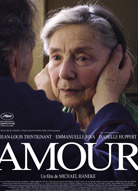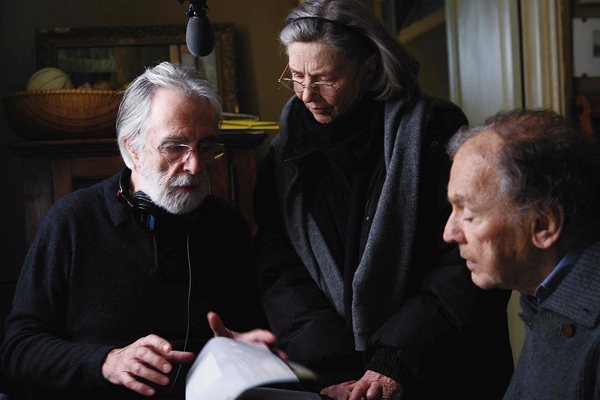It's a Wrap. October Highlights
 Thursday, November 1, 2012 at 7:01AM
Thursday, November 1, 2012 at 7:01AM We're doing this month's look back a bit differently. Though we wish all readers were year-round TFE maniacs, traffic always spikes during Oscar season so we welcome our fairweather friends back to us as we all link arms and beginning following that yellow brick red carpet road to the Wonderful Word of Oscars. In October we've been busy with plentiful limited series posts so here were some highlights from those batches.

NYFF
My single favorite moment of the NYFF is documented above. Shortly before The Paperboy screening for critics (with Nicole Kidman on hand afterwords to answer questions) the promo reel for the 50th anniversary of the festival froze on this image and stayed that way for minutes. I wasn't complaining. I like to look at her. As for the movies themselves, I was knocked out by three of the Best Foreign Language Films competing for Oscar: Austria's Amour, Chile's No and Bwakaw from the Philippines. Michael was dazzled by Noah Baumbach's Frances Ha with career best work from Greta Gerwig, and Denzel Washington's soon to be Oscar nominated performance in Flight. Meanwhile everyone was talking about Lincoln's Secret Debut "Secret" Debut including Team Experience on the Podcast.
007 Lists for 007
Deborah has been getting us celebrating the 50th anniversary of the longest running film franchise with James Bond centric lists. Like her 007 favorite films or the *only* 007 femme fatales. And we're asking all of you to vote on your 007 favorites... LAST CHANCE. Voting ends tomorrow, November 1st.
Oscar Horrors
Team Experience was asked to choose from a list of every Oscar nomination bequeathed to the horror genre or thereabouts and write about it -- just one Oscar nomination per post. Pan's Labyrinth got you talking, Addams Family Values got us laughing again (I even watched it again because of the post), and we reminisced about creepy actressing in Hush Hush Sweet Charlotte, Rebecca, The Spiral Staircase and Fatal Attraction to name just a handful of entries.

5 Random Favorite Posts
Which is Yummier?, "Lousy Lay", Guilt Trip Poster, Into the Woods reading and Monty meets Bernie
Happy November Everyone. Here's to the great (we hope) penultimate month of 2012
 NYFF,
NYFF,  Nicole Kidman,
Nicole Kidman,  Oscar Horrors,
Oscar Horrors,  Year in Review
Year in Review 








